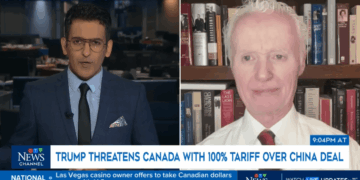This article was originally published in The Hill. Below is an excerpt from the article.
For decades, Americans have benefited — financially and medically — from a carefully balanced partnership between the U.S. government and sponsored private investors for developing a range of new drugs that have addressed the health conditions of millions.
That relationship is now threatened.
The Bayh-Dole Act of 1980 allowed companies acquiring inventions made with federal sponsorship to retain and profit from their licensed ownership. For over 40 years, the act has benefited Americans and the world in major drug discoveries. Federally funded research is now behind about a third of U.S. patents.
The act provides for “march-in rights” through which the government can invoke some degree of control over patents developed in part from public funding to ensure public access to them. Petitions for these rights have been submitted over the years but have had little success.
***TO READ THE FULL ARTICLE, VISIT THE HILL HERE***
Nigel Rawson is a senior fellow with the Center for North American Prosperity and Security.
John Adams is cofounder and CEO of Canadian PKU and Allied Disorders Inc., a senior fellow with the Center for North American Prosperity and Security and volunteer board chair of Best Medicines Coalition.








